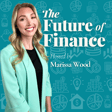
Episode 7: Biggest Financial Mistakes by Generation (Gen Z to Boomers) — And How to Fix Them Now
Every generation faces unique financial challenges—but what are the biggest money mistakes they keep making? In this episode of The Future of Finance, financial experts Marissa Wood and Lisa Green reveal the top financial pitfalls across Baby Boomers, Gen X, Millennials, and Gen Z—and share the exact strategies to avoid them.
From ignoring long-term care to overspending on credit cards, this episode breaks down real-life examples, practical tools, and actionable tips to help you take control of your financial future—no matter your age.
🎯 Topics Covered:
- Long-term care & estate planning
- Retirement readiness by generation
- Prioritizing your kids vs. your own future
- Credit card debt & Gen Z struggles
- How to start investing (even with little money)
- Smart tax-free retirement strategies
📌 Ready to take action? Visit union-financial.com to book a free consultation today.
👥 For one-on-one planning with Marissa or Lisa: https://www.union-financial.com/
➡️ Phone • Zoom • In-person available
⏱️ Timestamps:
00:00 – Intro: Why Financial Mistakes Differ By Generation
02:00 – Baby Boomers’ #1 Mistake: No Long-Term Care Planning
04:30 – How Estate Planning & Annuities Can Help Boomers
08:00 – Why Boomers Must Introduce Their Financial Advisor to Family
11:00 – Gen X’s Mistake: Prioritizing Kids Over Their Own Retirement
13:00 – The Cost of Withdrawing from a 401(k) Too Early
15:30 – Maxing Out Retirement Plans the Right Way
18:00 – Millennials’ Mistake: Delaying Investing
20:30 – Understanding Dollar Cost Averaging for Beginners
22:00 – Why Roth IRAs & IULs Are Crucial for Millennials
26:30 – Budgeting, Emergency Funds & Spending Habits
28:30 – Gen Z’s Pitfall: Credit Cards & Instant Gratification
31:30 – Why Gen Z Should Start a Roth IRA Now
